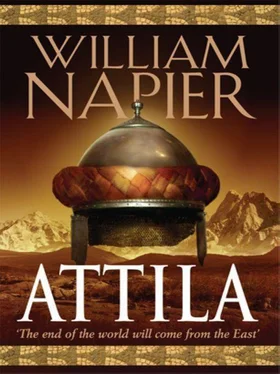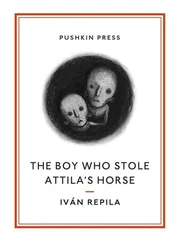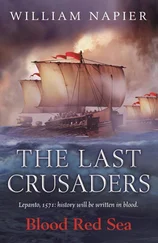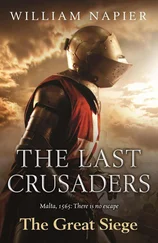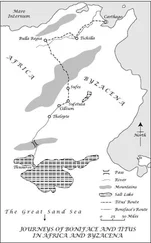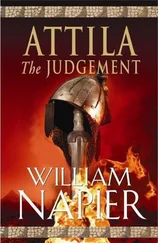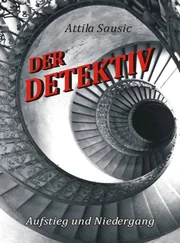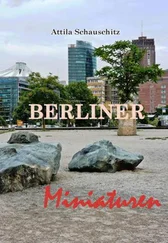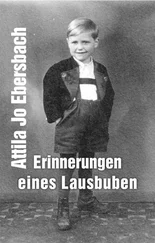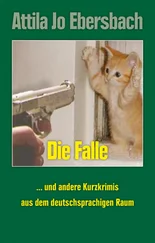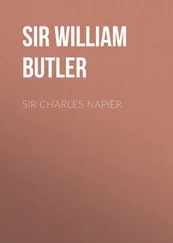William Napier - Attila
Здесь есть возможность читать онлайн «William Napier - Attila» весь текст электронной книги совершенно бесплатно (целиком полную версию без сокращений). В некоторых случаях можно слушать аудио, скачать через торрент в формате fb2 и присутствует краткое содержание. Жанр: Исторические приключения, на английском языке. Описание произведения, (предисловие) а так же отзывы посетителей доступны на портале библиотеки ЛибКат.
- Название:Attila
- Автор:
- Жанр:
- Год:неизвестен
- ISBN:нет данных
- Рейтинг книги:5 / 5. Голосов: 1
-
Избранное:Добавить в избранное
- Отзывы:
-
Ваша оценка:
- 100
- 1
- 2
- 3
- 4
- 5
Attila: краткое содержание, описание и аннотация
Предлагаем к чтению аннотацию, описание, краткое содержание или предисловие (зависит от того, что написал сам автор книги «Attila»). Если вы не нашли необходимую информацию о книге — напишите в комментариях, мы постараемся отыскать её.
Attila — читать онлайн бесплатно полную книгу (весь текст) целиком
Ниже представлен текст книги, разбитый по страницам. Система сохранения места последней прочитанной страницы, позволяет с удобством читать онлайн бесплатно книгу «Attila», без необходимости каждый раз заново искать на чём Вы остановились. Поставьте закладку, и сможете в любой момент перейти на страницу, на которой закончили чтение.
Интервал:
Закладка:
‘We’ll be the heroes of the People,’ said Orestes excitedly.
‘The envy of every man there,’ said Cadoc.
‘And the dream of every woman,’ chuckled Attila.
The other three all looked more or less embarrassed.
Attila grinned. ‘What, none of you have ever done it? To a woman?’
The two slaveboys flushed deeply. Aetius shook his head.
Attila settled back and grinned. ‘Well, well.’ It was good to feel powerful. He liked that feeling. After a while he said, ‘So you miss home?’
Aetius looked up and saw he was talking to him.
‘You pine for Rome?’
Aetius pulled a face. ‘I miss Italy,’ he said. ‘Rome is-’
‘Rome’s a cesspit,’ said Attila.
‘And you escaped it.’
‘I escaped it,’ said Attila. ‘No offence, but… your soldiers are useless. Mostly.’
The two boys eyed each other a little warily, then Attila laughed. Aetius didn’t.
‘And you,’ said Attila, rolling onto one elbow and waving regally at the two slaveboys. ‘You two. You’ll go free and laden with gold the moment we get back to camp.’
They stared.
Orestes stammered, ‘But – but I’ve nowhere else to go.’
Attila said seriously now, ‘You want to stay, Greek boy? Stay with the dreadful Huns, who eat raw meat and never have baths and refuse to bow to the meek dying and rising god of the Christians?’
Orestes looked down.
‘Then stay you will,’ said Attila. ‘But slave no more.’
Aetius was sitting cross-legged opposite Attila, watchful and wary as ever. He thought how like a king the boy already sounded, grandiloquently dispensing judgements and freedom and gold to left and to right with regal carelessness and magnificence.
‘And you,’ said Attila, turning to Cadoc, ‘you’ll go free, too. You almost saved my life.’
‘I did save your life,’ blurted Cadoc indignantly.
For a moment Attila stared at the dark-eyed slaveboy, and Aetius wondered if he might not erupt in fury at this impertinence, like his fiery uncle. But then he laughed, and they all relaxed. None of them wanted to see Attila lose his temper.
‘Very well,’ he said. ‘You did save my life. And my uncle will lade you with so much gold in gratitude that you won’t even be able to walk out of the camp!’
It took two ponies to drag the leaden weight of the boar’s head on its hazelwood travois. Two of the boys rode, and two of them walked, swapping places every hour or so. The three others tried to insist that Attila, at least, should ride, with his torn thigh muscle and his cut back, but he insisted on walking his fair share like the rest of them.
It was an arduous progress, and it was late the following night when they made it back into the camp of the Huns, so only the few warriors on nightwatch greeted their return.
But the next morning when people awoke and came blearily out of their tents, there in the middle of the camp, set on the back of a high-wheeled wagon to exaggerate its size still further, was a monstrous boar’s head, as big as any man or woman of the People had ever seen. Beneath the wagon lay four exhausted, grimy, travel-stained boys, huddled together under a heap of coarse woollen horse-blankets, fast asleep.
The people gathered around in open-mouthed amazement, some of the bolder reaching out to touch the boar’s great muzzle, or even tap its white fangs with their knuckles where its bloody jaws hung open. And they began to murmur among themselves.
The boys awoke to the sound, and crawled out from under the wagon and stood and stared. When they realised what was taking place, they began to grin and accept the many slaps on the arm or back, and agree that, yes, it was a terrific, and incredibly dangerous, feat that they had managed. They had slain the Monstrous Boar of the Northern Woods, and dragged it, or at least its severed head, all the way home to show the People with their own disbelieving eyes.
Two burly men of the tribe plucked Attila into the air, set him on their shoulders, and began to parade him around, while the women sang and ululated in praise of his great feat of arms. Other men had killed boar, they sang, but Attila had killed the King of the Boar. The sun shone bright from the bold eyes of Prince Attila. Surely there was no warrior in the land like Prince Attila.
Some of the women called out bawdy comments, saying that they would be happy to have a son by him any time, if he cared to visit their tent one night… Attila grinned and waved and lapped it up, his injured thigh and back forgotten for the moment. Meanwhile, the other three tried not to look too resentful: their contribution to the death of the boar was wholly ignored in favour of the People’s prince. Then the parade suddenly came to a halt, the singing died away, and an ominous silence settled heavily upon the crowd.
There stood King Ruga, flanked by his personal guard. He did not sing and ululate at his nephew’s great achievement. He did not hail him as the killer of the King of the Boar, or declare that the sun shone bright from his bold eyes. He stood grimly before him, folded his beefy arms across his chest, set his face grimly, and said nothing.
Attila slid down from the men’s shoulders, wincing as he took his weight on his torn thigh muscle again, and stood before him.
‘We slew a boar,’ he said, waving at it as casually as he could.
Ruga nodded. ‘So I see.’
‘And the slaveboys and the Roman boy, they slew it, too. In fact, they saved my life. The debt of the Royal Blood of Uldin is upon their heads, and I have given them their freedom.’
Ruga was silent for a long while. Then he repeated slowly, softly, ‘You have given them their freedom?’
Attila nodded, hesitantly, his eyes falling away from the king. ‘That is to say… ’ His voice weakened and tailed off. He knew he had made a mistake.
The voice of Ruga roared out across the circle, and the very sides of the surrounding black tents shivered under the blast, and as he roared he strode towards the suddenly cowering boy. ‘It is not yours to give a slave his freedom! It is in the gift of the king!’ With a gigantic backhanded swipe of his fist he knocked Attila into the dust. ‘Unless you think that you are an equal of the king, now? Is that it, boy?’ He planted his felt-booted foot hard on the boy’s chest, knocking the wind from his lungs, and roared again, ‘Is that it? Boar-slayer? Upstart? Malformed whelp from your mother’s womb?’
All Attila’s ardent spirit died under the righteous wrath of his uncle, and he turned his face into the dust and did not reply.
Suddenly Ruga looked across at the Roman boy, and the people were baffled. A few had glimpsed what Aetius had done, as had the hawk-eyed, bearded king. Almost despite himself, Aetius had taken a step forward when he saw Attila knocked to the ground, and his hand had reached for his sword.
Little Bird, with his bird-bright eyes, had seen, and seemed to think it funny. ‘White boy draw a sward, father! White boy draw a sward!’
‘Peace, madman,’ growled Ruga, brushing the capering fool aside. ‘You talk of nothing.’
‘Everything is nothing,’ said Little Bird sulkily, and sat in the dust.
Ruga turned his lowering gaze back to Aetius. ‘Approach me with your weapon, would you, boy?’ he rumbled.
Aetius faltered and stopped, but he did not step back. And he said, so quietly that only the very closest could hear, ‘Do not hurt him.’
‘Do you give me orders, boy? The days when the Huns took orders from the Romans are long gone. Aye, and if I were to mete out just punishment to you, for the sins that your people committed in their maltreatment of this boy, this prince of the royal blood – for all his impudence – I would have you stripped of your skin in a trice, and your bleeding carcasses dumped on the anthills of the steppes to be picked clean down to its meagre bones! A pretty death for such a high-born boy, eh? Eh? Answer me, boy.’
Читать дальшеИнтервал:
Закладка:
Похожие книги на «Attila»
Представляем Вашему вниманию похожие книги на «Attila» списком для выбора. Мы отобрали схожую по названию и смыслу литературу в надежде предоставить читателям больше вариантов отыскать новые, интересные, ещё непрочитанные произведения.
Обсуждение, отзывы о книге «Attila» и просто собственные мнения читателей. Оставьте ваши комментарии, напишите, что Вы думаете о произведении, его смысле или главных героях. Укажите что конкретно понравилось, а что нет, и почему Вы так считаете.
